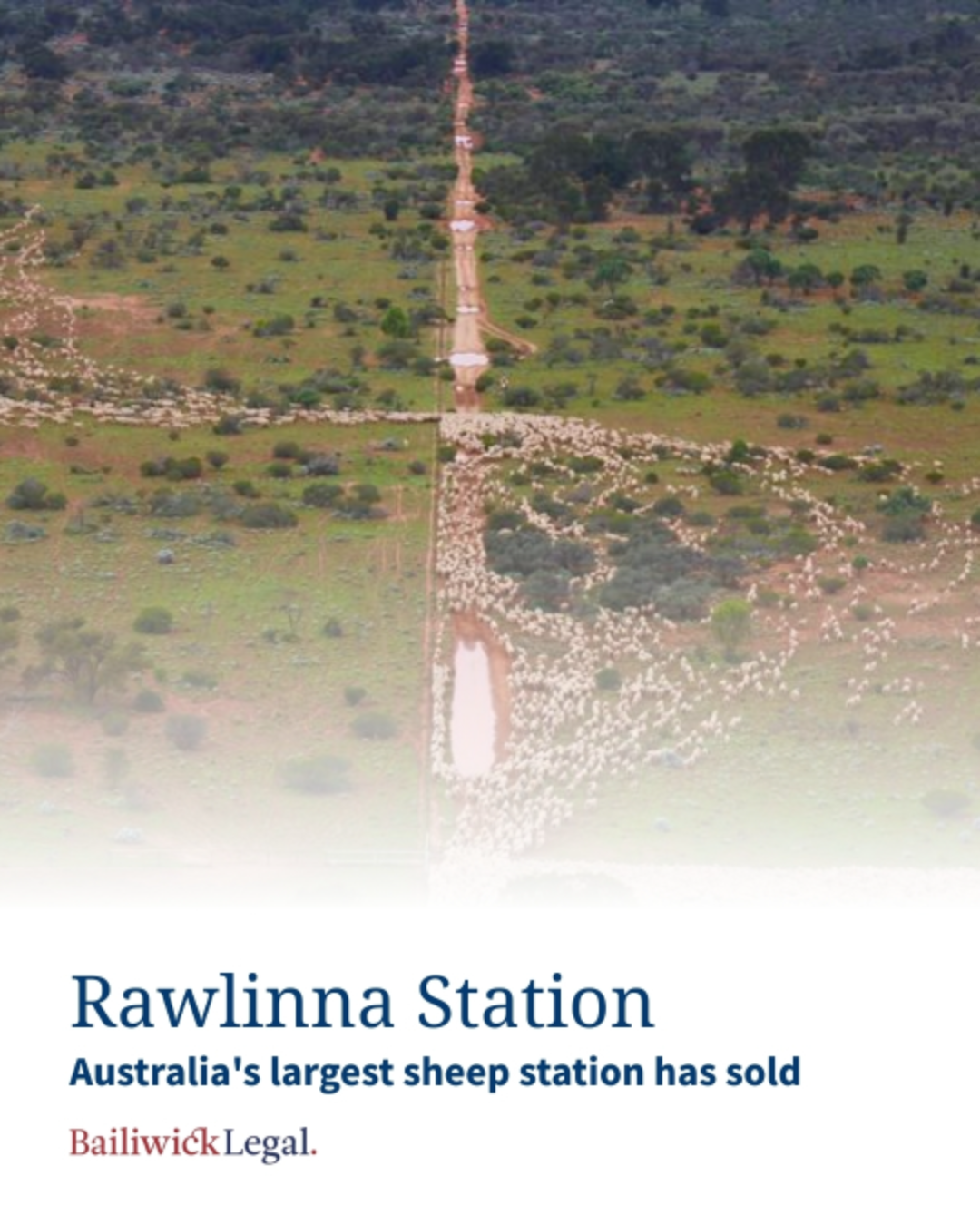Australian Broadcasting Corporation v SAWA Pty Ltd - Right to free speech and publication Case Notes
February 19, 2026
Author name
Video Surveillance of Alleged Animal Cruelty
In 2012 an employee of SAWA Pty Ltd secretly videoed activities involving what they believed to be potential animal cruelty offenses occurring on a cattle station in Western Australia. The videos showed the de-horning of cattle and one animal being put down. After providing the videos to the RSPCA, SAWA and one of their directors were charged with eight animal cruelty offenses.
The Magistrates Court determined that the videos were in breach of the Surveillance Devices Act because they were secret recordings of private activities and conversations, and would usually not be allowed to be shown as evidence. However, in the circumstances of the case the Court decided that the videos would be admitted as evidence despite being in breach of the Act, and they were played to the open court during the trial.
SAWA and the director were subsequently acquitted of seven of the charges and convicted of one; they appealed that conviction and were also acquitted.
ABC’s Application to Publish the Videos
After the appeal, the ABC applied to the Magistrates Court to gain a copy of the videos that had been shown as evidence. The Court approved the application. SAWA became aware that the ABC had a copy of the videos and began legal action to prevent the ABC from publishing the videos. The ABC then applied to the Court to gain permission to publish the videos.
The Surveillance Devices Act provides that recordings of private conversations and activities cannot be published if they came to a person’s knowledge as a result of covert or secret recording, except when a judge is convinced that publication should occur in order to protect or further the public interest.
The ABC argued that publishing the videos would further and protect the public interest by allowing for free communication and debate, especially surrounding the proposed changes to the Animal Welfare Act that are currently being discussed in Parliament. The ABC also claimed that publishing the videos would assist in preventing inhumane treatment of animals and would encourage general debate about animal welfare laws and standard farming practices in different states. ABC’s application was refused, and they appealed this decision.
Freedom of Speech
On the appeal the ABC argued, among other things, that the original judge made an error in the decision by not giving consideration to a legal principle that basically states that legislation should not be interpreted in a way that restricts our basic freedoms and rights. The ABC believed that the judge had to give consideration to the public’s implied right to free speech and that this right should have taken priority over other considerations. The Appeal Court disagreed, explaining that the purpose of the Surveillance Devices Act is to specifically protect against this type of publication and to prioritise free speech would go against the Act’s purpose.
Further, the Appeal Court found that the ABC did not necessarily need to publish the videos in order to achieve the purpose of protecting and furthering public interest. ABC could very easily report on the events that occurred in the video and encourage debate around changes to Animal Welfare law without the videos being shown. The ABC disagreed on this, arguing that images are powerful in informing public understanding of animal cruelty and animal distress and could not be adequately replaced by descriptions. The Court reasoned that the recordings would not positively enhance public understanding or debate on the issues to any significant degree.
Uncontrolled Publication
The Court also discussed concerns with allowing covertly recorded videos to be published in what is arguably an uncontrollable manner.
The ABC’s application to publish the videos laid out the purposes for which they believed publication should occur, as discussed above. Even if these purposes were considered valid, the Appeal Court expressed concern that the inability to control republication of the videos would cause damage to the privacy protections that the Act was designed to provide to the public.
The ABC may have followed the rules of how and why it would be given permission to publish the videos, but there would be no way to prevent others from republishing the videos for whatever purposes they wished. This would potentially destroy the protections that the Act was designed to provide. Republication via social media is common and it would be impossible for a Court to enforce any limitations on how or why the videos would be republished.
Conclusion
The right to free speech is seen by most Australians as a common law right with far-reaching implications. While Australian Courts have accepted that an implied right to freedom of political communication exists in our Constitution, that right is not one without limitations.
As this case has demonstrated, the Courts respect that the right exists and that it serves to further the public interest in understanding and engaging with political debate. However, legislation that also stands to serve the public interest in some manner – in this case privacy protection – should not be overlooked in order to extend that right beyond what is necessary.
Reporters have a variety of opportunities to engage the public in political debate and enhance public understanding, upholding the implied right to freedom of political communication. Publishing videos is not always necessary in order for that right to prevail and should not do so when it directly goes against the protections extended to the public by the Surveillance Devices Act.
For any questions or further information on the above please contact Philip Brunner on 0427 783 168 or email: phil@bailiwicklegal.com.au

Bailiwick Legal has been honoured to support Forever Wild over the past few years as they delivered one of the most significant conservation land acquisition programs undertaken in Western Australia. Our team assisted Forever Wild with the strategic purchase of four pastoral stations, Narndee , Boodanoo , Meeline and Challa , transactions that now connect three State Reserves and protect more than 12,000 square kilometres of land. To put that scale into perspective, the combined area is approximately five times the size of the ACT and nearly one-fifth the size of Tasmania . Navigating complexity at scale These were not straightforward property transactions. Each acquisition involved: Multiple pastoral leases Layered regulatory and approval pathways Significant operational and on-ground assets Numerous stakeholders across government, industry and land management Our role was to guide Forever Wild through this complexity with clarity, precision and confidence, ensuring each transaction progressed efficiently while managing risk and safeguarding long-term objectives. “ Forever Wild is creating a world-leading model for nature funding that demonstrates we can manage viable, working pastoral stations whilst also restoring and protecting local ecological flora and fauna, and engaging and supporting Indigenous people and local communities. Complex & challenging, but this initiative could literally change the world .” Jessica Brunner - Director, Bailiwick Legal A growing and evolving legal landscape Large-scale conservation acquisitions sit within an emerging and increasingly complex legal field , intersecting land tenure, pastoral regulation, environmental frameworks and commercial considerations. These matters demand a deep understanding of both the legal mechanics and the practical realities of operating in regional and remote Australia. Our team’s experience in agribusiness, pastoral land transactions and regulatory approvals allowed us to support Forever Wild at every stage, from strategic structuring through to completion. Proud to support leadership in nature finance Forever Wild is widely recognised as an industry leader and a steadfast advocate for nature finance initiatives , helping pave the way for greater accessibility and innovation in conservation funding and land stewardship. We are proud to have contributed our relationships, expertise and practical legal insight to help Forever Wild achieve its vision, and to have played a role, however small, in shaping a groundbreaking future for conservation in Australia. At Bailiwick Legal, we value the opportunity to work alongside organisations that are thinking long-term, acting boldly, and creating outcomes that extend well beyond the transaction itself. For assistance with all of your agribusiness needs, contact Bailiwick Legal on 08 9321 5451 or email office@bailiwicklegal.com.au For further information about our legal services, please visit our website: https://www.bailiwicklegal.com.au The above information is a summary and overview of the matters discussed. This publication does not constitute legal advice and you should seek legal or other professional advice before acting or relying on any of the content.

Bailiwick Legal Advises on Landmark Acquisition of Rawlinna Station by Consolidated Pastoral Company
Bailiwick Legal is proud to have acted for Consolidated Pastoral Company (CPC) in its successful acquisition of Rawlinna Station , Australia’s largest sheep station, located on the remote Nullarbor Plain in Western Australia. Spanning over 1 million hectares and running approximately 30,000 sheep , Rawlinna is an iconic pastoral asset with a rich legacy, having been held by the MacLachlan family’s Jumbuck Pastoral Company since its establishment in 1962. The sale marks the first change of ownership in over six decades and was finalised following formal approval from the Western Australian Government for the transfer of the pastoral leases. This transaction involved navigating: The transfer of three separate pastoral leases Coordination across multiple vendor entities Consideration of livestock and operating assets Fulfilment of regulatory and compliance requirements, including WA lease approval processes Bailiwick Legal is a boutique agricultural and regional law firm , proudly based in Perth and Bridgetown, Western Australia. Our role in this acquisition demonstrates that deep sector knowledge, local insight, and personalised legal support are crucial for agribusiness clients managing complex, high-value transactions. Our team, led by our regionally-based solicitor, Matilda Lloyd, provided end-to-end legal and strategic support, including: Due diligence on land tenure and operating assets Contract negotiation and preparation Advice on regulatory approvals and compliance Strategic coordination with CPC’s internal and external stakeholders to ensure a smooth and timely settlement We are honoured to have supported CPC in this milestone acquisition and look forward to watching Rawlinna’s next chapter unfolds. At Bailiwick Legal, we believe that regional expertise, deep industry knowledge, and relationship-based service remain essential to agribusiness success, no matter the scale. Congratulations to all parties involved, including the MacLachlan family, whose stewardship of Rawlinna leaves a lasting legacy in Australian agriculture. – The Bailiwick Legal Team Working alongside agribusinesses to grow, transition, and thrive . For assistance with all of your agribusiness needs, contact Bailiwick Legal on 08 9321 5451 or email office@bailiwicklegal.com.au By Matilda Lloyd (Associate) For further information about our legal services, please visit our website: https://www.bailiwicklegal.com.au The above information is a summary and overview of the matters discussed. This publication does not constitute legal advice and you should seek legal or other professional advice before acting or relying on any of the content.











